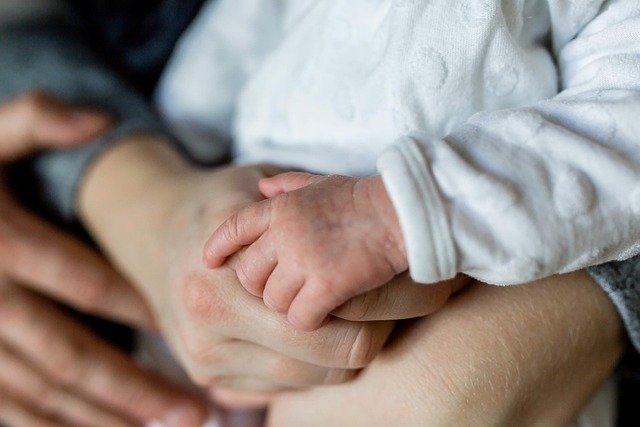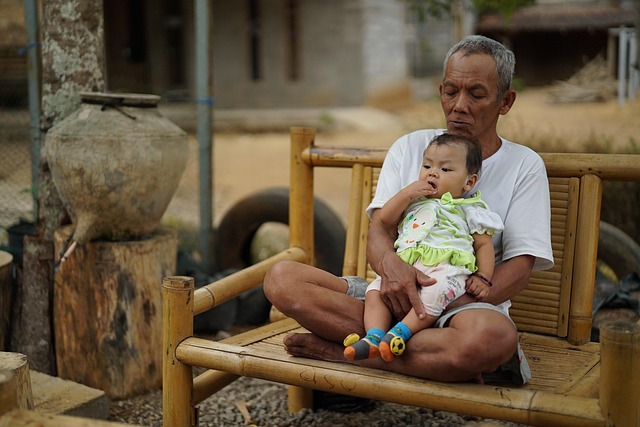In Oregon, especially within Washington County, complex child welfare cases and DHS proceedings are managed by the Department of Human Services (DHS) and Oregon Child Protective Services (OCPS). The Washington County Child Advocacy team offers critical legal guidance to parents, balancing child well-being with parental rights. This focused approach leverages Oregon family law to create a harmonious resolution. Key aspects include strategic navigation of DHS proceedings, parental rights legal protection, and comprehensive advocacy for both children and families. Resources like OCPS and Washington County child advocacy groups provide invaluable support, facilitating communication and ensuring fair outcomes in challenging situations.
In child welfare situations, protecting family interests is paramount. This comprehensive guide delves into the intricate balance between ensuring child safety and preserving parental rights, with a focus on Oregon’s system. We explore essential legal guidance for navigating DHS proceedings, highlighting Washington County Child Advocacy’s role in supporting families. Understanding Oregon Child Protective Services’ (OCPS) roles and responsibilities is key, along with effective strategies to protect parental rights under family law in Oregon.
- Understanding Child Welfare Cases and Legal Guidance
- DHS Proceedings in Oregon: A Glimpse into the System
- Protecting Parental Rights: Legal Protection Strategies
- Washington County Child Advocacy: Supporting Families
- Oregon Child Protective Services (OCPS): Roles and Responsibilities
- Navigating Family Law in Oregon for Better Interest Protection
Understanding Child Welfare Cases and Legal Guidance

Child welfare cases are complex legal matters that require careful navigation to protect family interests and ensure the well-being of children. In Oregon, particularly within Washington County, DHS proceedings (Department of Human Services) are a significant aspect of child protection. The Washington County Child Advocacy team plays a crucial role in providing legal guidance and support to families facing these challenges. Understanding the legal framework surrounding child welfare is essential for both parents and guardians seeking to safeguard their rights.
Oregon’s family law system offers various protections for parental rights, emphasizing the importance of maintaining family unity whenever possible. Oregon Child Protective Services (OCPS) provides a range of services, from in-home support to temporary placement, with the ultimate goal of reuniting families when it is safe to do so. Legal guidance during these proceedings is vital to help parents understand their rights, participate effectively in court processes, and make informed decisions regarding their children’s future.
DHS Proceedings in Oregon: A Glimpse into the System

In Oregon, the Department of Human Services (DHS) plays a pivotal role in child welfare proceedings, ensuring the safety and well-being of children while also considering the parental rights and interests of families. Washington County is a notable example where dedicated child advocacy teams work closely with DHS to provide legal guidance and support throughout these complex processes. These efforts are crucial for navigating the intricate legal landscape surrounding Oregon’s Child Protective Services (CPS).
The focus on family law in Oregon highlights the delicate balance between safeguarding vulnerable children and upholding parental rights. Legal protection is essential, especially during DHS proceedings, to ensure that families receive fair treatment and that their interests are protected. This comprehensive approach, involving both child advocacy and parental rights legal guidance, allows for a more harmonious resolution of child welfare cases in Oregon.
Protecting Parental Rights: Legal Protection Strategies

In child welfare situations, balancing the well-being of a child with protecting parental rights is paramount. Legal protection strategies are crucial for ensuring parents’ rights are upheld throughout DHS proceedings in Oregon, especially when dealing with Washington County Child Advocacy. Parents facing Oregon Child Protective Services (CPS) investigations or interventions should seek family law in Oregon experts who can guide them through the complexities of these cases.
Lawyers specializing in family law can provide vital legal guidance, helping parents understand their rights and options. They can challenge any unwarranted actions by CPS, ensuring that parental rights are respected while still prioritizing the safety and best interests of the child. This strategic approach allows for a fairer navigation of DHS proceedings in Oregon, fostering a more supportive environment for families involved in Washington County Child Advocacy.
Washington County Child Advocacy: Supporting Families

Washington County Child Advocacy is a vital resource for families navigating complex child welfare cases and DHS proceedings in Oregon. Their dedicated team provides critical legal guidance and support to parents, ensuring their parental rights are protected throughout the process. With expertise in Oregon child protective services and family law in Oregon, they offer a safe haven for families to understand their options and make informed decisions.
Through comprehensive advocacy, Washington County Child Advocacy helps families stay connected during challenging times. They facilitate communication with legal professionals, social workers, and other involved parties, creating a collaborative environment. This approach allows parents to actively participate in their child’s case while safeguarding their interests and rights within the legal framework of Oregon child protective services.
Oregon Child Protective Services (OCPS): Roles and Responsibilities

Oregon Child Protective Services (OCPS) plays a pivotal role in ensuring the safety and well-being of children within the state, particularly in child welfare cases. Their primary responsibility is to investigate reports of suspected child abuse or neglect, conducting thorough assessments to determine the validity of these claims. OCPS social workers are equipped with the expertise to offer legal guidance, supporting families involved in DHS proceedings in Oregon. They work collaboratively with other agencies, such as Washington County Child Advocacy, to provide comprehensive services.
In child welfare situations, OCPS has the authority to take various actions, including offering temporary or permanent protective orders for at-risk children. They also facilitate family therapy and case management, aiming to strengthen families and prevent future interventions. When it comes to parental rights and legal protection in Oregon, OCPS ensures that these rights are upheld while prioritizing the child’s best interests. Their expertise in family law enables them to navigate complex scenarios, providing a safety net for all parties involved.
Navigating Family Law in Oregon for Better Interest Protection

Navigating Family Law in Oregon is crucial when safeguarding family interests in child welfare cases. The state’s legal framework provides a robust system for protecting parental rights and ensuring the best interest of children involved in DHS proceedings. Oregon Child Protective Services (OCPS) follows strict protocols, but having specialized legal guidance can significantly impact outcomes. Attorneys experienced in family law and child welfare proceedings, such as those in Washington County child advocacy groups, offer invaluable support to families facing these challenging situations.
Understanding the intricate dynamics of DHS proceedings in Oregon is essential for effective protection. Family lawyers in this state are well-versed in the legal protections afforded to parents, including the right to counsel, access to records, and fair hearings. This specialized knowledge helps ensure that parental rights are not only recognized but also vigorously defended throughout the process, fostering a more favorable environment for family reunification or alternative arrangements that align with the child’s best interests.
